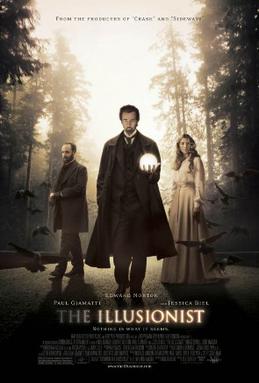More Like A Duet, Actually
 - Joe Wright is one of the best directors in the film business right now. Whether considering his highly-acclaimed 2005 adaptation of Pride And Prejudice (the best directorial feature film debut since John Huston's The Maltese Falcon in 1941 if you ask me) or the multi-Oscar-nominated 2007 war/romance epic Atonement, Wright's work really stands out in today's Hollywood.
- Joe Wright is one of the best directors in the film business right now. Whether considering his highly-acclaimed 2005 adaptation of Pride And Prejudice (the best directorial feature film debut since John Huston's The Maltese Falcon in 1941 if you ask me) or the multi-Oscar-nominated 2007 war/romance epic Atonement, Wright's work really stands out in today's Hollywood.Wright works on a smaller scale for his third film, The Soloist in 2009, but achieves the same level of brilliance of his first two films. Based on the true story of Los Angeles Times columnist Steve Lopez's (Robert Downey Jr.) writings on homeless musician Nathaniel Ayers (Jamie Foxx), The Soloist is a stylish, inspiring and deeply moving drama.
Bringing in Atonement buddies, cinematographer Seamus McGarvey and composer Dario Marianelli, Wright creates an amazing looking and feeling film with The Soloist. Never have the slums of Los Angeles looked so good until Wright and McGarvey captured them for the backdrop to Lopez and Ayers' story. Marianelli writes a delicate piece of music for the film and no doubt arranges the many pieces of classical music (Ayers specifically has a thing for Beethoven's music and Symphony No. 3 is heavily featured in the film) in a quite brilliant way. The Soloist ends up just as powerful, visually and emotionally, as Wright's other films because of this quality collaboration.
Since the film is titled "The Soloist," one would naturally assume that the film centers around Nathaniel Ayers, considering the fact that he is the one playing instruments alone in various parts of the L.A. Interestingly enough, the film is really about Steve Lopez and how Ayers changes him. Robert Downey Jr. offers up one of the finest performances of his career as Steve Lopez - his calm, layered, and subtle performance brings out the dry nature (and humor) and care of the character in a way that really drives the film. Downey Jr.'s Steve character has been getting used to not really caring or having to think about anything or anyone else, since screwing up his relationship with his now ex-wife and son, but all that is about to change when Steve finds the homeless Nathaniel Ayers playing Beethoven in downtown L.A.
Steve sees a story in Nathaniel, and his research leads him to discover that Nathaniel was once a student at the prestigious Juilliard School studying the cello. Further research and time spent with Nathaniel reveals his losing battle with schizophrenia. Jamie Foxx gives a striking portrayal of Nathaniel Ayers, unnerving the viewer with Ayers' unpredictable mental state while charming them with the character's child-like manner and passion for music. Foxx is at his best here in The Soloist, also giving one of the best performances of his career. Lopez sees Nathaniel simply as an interesting subject to write on at first but the more time Steve spends with Nathaniel, the more Steve wants to help him succeed as a musician. That proves to be a difficult task, for both Steve and Nathaniel, and their relationship becomes quite complex.
Apart from the character drama aspect of the film, Wright also uses The Soloist to comment on the problems of homelessness in the United States. Unlike the many other aspects that make The Soloist a great movie - the themes of friendship, the powerful style, the incredible music, the first-rate acting, etc. - this social commentary portion of the film does not work at all. Looking at all of the homeless people presented in the film (and, to be fair, it is unclear if Wright meant to do this or not), The Soloist presents a clear answer as to why all of these people are homeless: they are all insane!
So while the social statement of the film dies on impact, the stylish character drama played out perfectly by Downey Jr. and Foxx remains strong and easily carries The Soloist on its own. In the end, Wright delivers yet another brilliant film.
CBC Rating: 9/10

